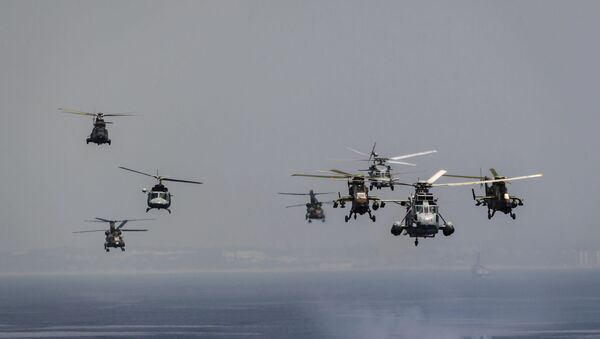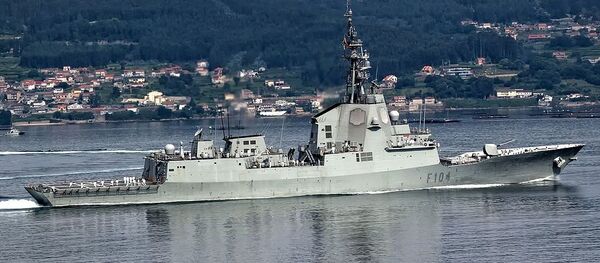The acting Spanish government has given a go-ahead to the deployment of additional US troops at a naval base in the south of the country, sidestepping the need to amend the existing bilateral defence deal in parliament, El Pais reports.
Spain operates Naval Station Rota in the province of Cadiz, west of the Gibraltar Strait, which provides cargo, fuel and logistics support to US and NATO ships.
The base, which harbours small US Army and US Air Force contingents, is fully funded by Washington.
Earlier this month, the US Navy’s 6th Fleet announced that four Arleigh Burke-class guided-missile destroyers currently stationed in Rota − the USS Porter, USS Ross, USS Carney, and USS Donald Cook − would be replaced with newer ones. Additionally, the Navy said it would send a helicopter maritime strike squadron there in support of the destroyers.
El Pais detailed, citing government officials, that this squadron includes up to six Sikorsky SH-60 Seahawk helicopters, as well as 30 US pilots and mechanics.
According to a 1988 defence agreement, the US is allowed to deploy 4,250 military personnel and 1,000 civilians at most.
But in order to authorise the arrival of the squadron, the Spanish government had to amend the deal just like it previously did in 2002 and 2012. Any changes would have to pass through the Spanish parliament.
Sources told El Pais that there are difficulties associated with modifying the agreement, given the “current climate of political uncertainty” in Spain, where the ruling Socialist Party won the parliamentary election in April but fell short of being able to form an absolute majority in parliament and has yet to form a coalition.
That’s why, in a bid to avoid parliamentary debate, Spain’s caretaker Socialist government reportedly decided to list the helicopter squadron as part of the four destroyers, which had already been approved.
Last month, Spain withdrew a frigate from the combat group of the USS Abraham Lincoln, which was being deployed to the Middle East amid heightened tensions with Iran.
Acting Defence Minister Margarita Robles described it as a “temporary measure” dictated by Washington’s decision to tackle an alleged threat from Iran, which she said was “taken outside of the framework of what had been agreed with the Spanish Navy”.



